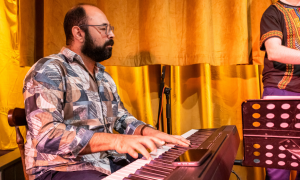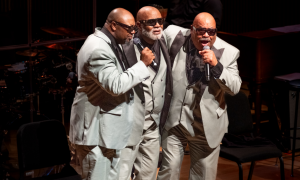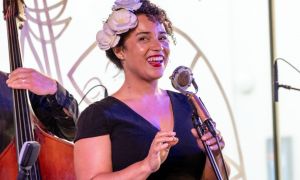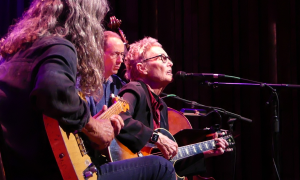Home » Jazz Articles » Live Review » Punkt Festival 2013
Punkt Festival 2013
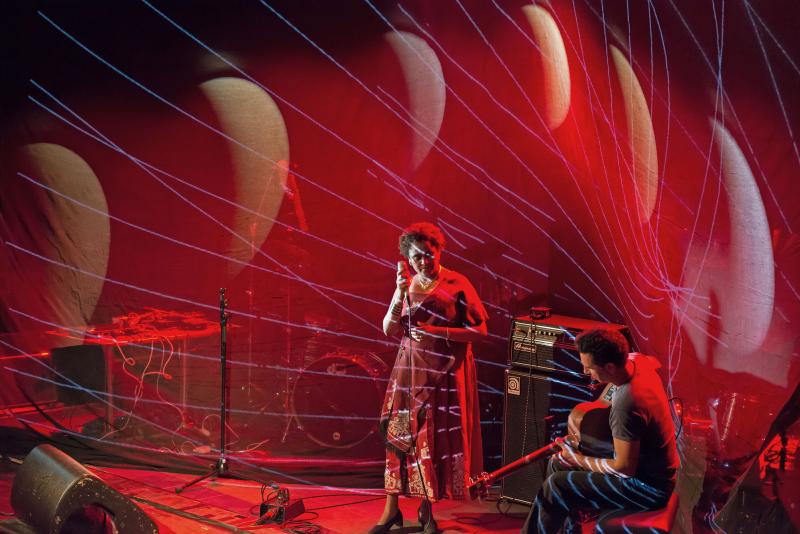
Kick
Kristiansand, Norway
September 6-8, 2013
Punkt is back. Three simple words with greater significance. While the annual festival, which has made its name on the strength of two additional words—Live Remix—had an eighth edition in 2012 that, on paper, should have been nothing short of spectacular, it was ultimately not just disappointing but, for longtime attendees, something that actually engendered real anger.
The reasons were two-fold: first, invited festival curator

Brian Eno
synthesizerb.1948
Second, while Kristiansand's wonderful new state of the art culture house, Kilden, was a remarkable building, it was simply too large, too sterile, too impresonal for a festival like Punkt, which thrives on intimacy and transparency.
Fixing the first problem was easy: for Punkt's ninth edition, co-Artistic Directors

Jan Bang
live samplingb.1968

Erik Honore
samples / effectsb.1966

Arve Henriksen
trumpetb.1968

David Sylvian
vocalsb.1958
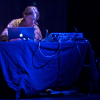
Christian Fennesz
guitar
Nils Petter Molvaer
trumpetb.1960

Eivind Aarset
guitar
Bugge Wesseltoft
pianob.1964
As is typical of the ever-expanding Punkt network, there were some new faces, too: Ethiopian singer Et©”n©©sh Wassi©” and French bass guitarist Mathieu Sourisseau made their first visit to the festival, and pianist

Tigran Hamasyan
pianoAnd there were some tremendous remix potentials, including the live remix power trio of Bang, Honor©” and singer

Sidsel Endresen
vocals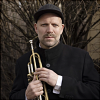
Mathias Eick
trumpetb.1979
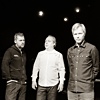
Huntsville
band / ensemble / orchestra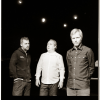
Ivar Grydeland
guitar, electric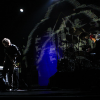
Audun Kleive
drumsBut with Kilden out of the question, for a number of reasons but mainly because it was simply not the right venue for Punkt—and with its old home, the Agder Theatre, now out of the running, where to go? Choosing Kick—a club that has, in the past, been used for the Punkt Elope series for young, up-and-coming artists, may not have seemed like an obvious choice; after all, there were no two rooms in which to set up main stage performances and the Alfa Room for live remixes. But adversity sometimes causes people to think outside the box and so, while there was some concern when it was announced that Kick would be used, and that they would somehow use its single stage for both main stage performances and live remixes, there was also the trust in Bang, Honor©” and the entire team of Punkt volunteers; if they felt it was possible, then it would be possible.
 And it was. Not without the need to alter the mindset, and there were certainly some small snags—many of which were ironed out as the weekend progressed—but there were also some new advantages that were revealed as well. In past years, shows would be seen on the main stage of the venue. Following their completion, attendees would have to exit the hall and move to the other room (the Alfa Room) downstairs; even in the Agder, where the vibe was much less performance and much more intimate laboratory, where it was like being in the middle of a musical experiment, the time lapse between performance and remix sometimes resulted in a loss of continuity—although it did allow the remixers to set up during the main performance, listen and consider possible fragments for use.
And it was. Not without the need to alter the mindset, and there were certainly some small snags—many of which were ironed out as the weekend progressed—but there were also some new advantages that were revealed as well. In past years, shows would be seen on the main stage of the venue. Following their completion, attendees would have to exit the hall and move to the other room (the Alfa Room) downstairs; even in the Agder, where the vibe was much less performance and much more intimate laboratory, where it was like being in the middle of a musical experiment, the time lapse between performance and remix sometimes resulted in a loss of continuity—although it did allow the remixers to set up during the main performance, listen and consider possible fragments for use. At Kick, with an alcove situated above and behind the main stage that, walled in white drapery, was referred to by Honor©” as "the doll's house," it was possible to start the live remix instantly following the end of the main stage performance, allowing for a real connection to be made; no more obvious was this when Henriksen, Bang and Honor©” remixed Eivind Aarset's Dream Logic show. Over the course of three nights at Kick, having the remix begin instantly and then having a longer break before the next main stage act created a greater delineation between each performance and remix that, in almost every case, worked extremely well.
Punkt 2013 also missed one other important ingredient, unexpectedly: Fiona Talkington- -British radio show host of BBC's Late Junction, curator of the Conexions and Scene Norway series in London and much more—took ill at the last moment and so, having been the festival's MC and introducer for the past several years, a replacement had to be found on short notice. Thankfully, Dave Mullan—a longtime, self-avowed Punkaholic and web designer for artists including Bugge Wesseltoft and Arve Henriksen—was there to pick up the task. While Mullan didn't have Talkington's warmth and heart, what he brought to the stage introductions was a distinctly Irish sense of humor and informality that got better as the weekend wore on. Nobody could ever expect to replace Talkington, clearly the festival's heart, but with Mullan, Punkt had found its funny bone.
Day One, September 6: Mariam the Believer / Tigran Hamasyan & Jan Bang / Arve Henriksen & Jan Bang Double Release Concert
While the 2013 edition of Punkt did a little returning to roots, with a program that featured many of its mainstay performers—members of the ever-expanding Punkt family—it's always a sure bet that the festival will invite artists new to the festival and, in many cases, new to its audience. Swedish singer Mariam Wallentin was not a totally unknown entity, but how she has been known—WIldbirds & Peacedrums, her experimental duo with husband/drummer Andreas Werlin, and her work with bassist

Anders Jormin
bassConsiderably more straightforward than either Wildbirds & Peacedrums or her work with Jormin, Wallentin was celebrating the recent release of the group's first record, Blood Donation (Repeat Until Death, 2013). Werliin—better known, perhaps, as one-third of the Fire! trio with saxophonist

Mats Gustafsson
woodwindsb.1964

Together, the result was a singer/songwriter's pop group, one capable of curious arrangements, otherworldly sonics and visceral grooves, all in support of the charismatic Wallentin, whose voice combined the upper and lower register leaps of oriental and middle eastern music into a unique and captivating hybrid. A careful, theatrical performer who came onstage in a flowing, colorful wrap that she later removed, revealing a pitch black dress underneath, Wallentin added some guitar to the mix but, far more often than not, the focus was on her vocal delivery of material that combined bleak subjects like "Dead Meat" with the similarly dark but ultimately more hopeful title track.
The music ranged from slower, anthemic tunes like "The String of Everything," with Hallonstens's swooping electronics, to more up-tempo songs like "Invisible Giving," a potent song driven by Werliin's military-style drumming and Berger Myhre's chord- centric bass work, creating a foundation that gradually slowed down and turned into an atmospheric ending, Wallentin singing over Hallonsten's cushiony synth washes. It was a terrific start to Punkt 2013, and early proof that the festival had, indeed, found a new home at Kick.

The first remix also brought someone new into the Punkt family. Trumpeter Mathias Eick has proven, since the release of his solo debut, The Door (2008), and its followup, 2011's Skala—both on ECM—not just a terrific sideman with groups like

Jaga Jazzist
band / ensemble / orchestra
Iro Haarla
piano
Clifford Brown
trumpetb.1930

Kenny Wheeler
flugelhorn1930 - 2014
It also gave Punkt fans the first chance to see how the festival was dealing with remixing main stage acts on the same stage—or, at least, in an alcove behind it. For this first remix, the curtain opened on an alcove where there was barely enough room for everyone, but as Bang and Honor©” searched for fragments to process, loop and otherwise twist and turn, Eick contributed characteristically lyrical lines that wove in, out and around samples of Wallentin's vocals as if they were made for each other.
A capella trumpet passages led to sensual grooves sampled from Mariam The Believer's show, skewed ever so slightly to create a remix that not only promised a great weekend ahead, but came as a great relief to those who, while absolutely trusting in Bang and Honor©”'s decision to move Punkt to Kick, could still not be entirely convinced until they actually saw it in action. And, as the weekend went on, it was clear that each performance and remix was a lesson to visual artist Tord Knudsen and sound engineers Asle Karstad and Johnny Skalleberg, as they adapted to every possible challenge, trying out a number of solutions until, by the end of the festival, the direction became much clearer. It wasn't quite the feeling of being in a laboratory that the original Alfa Room provided at the Agder Theatre but, in its own way, it reinvented what a live remix could be, and if it wasn't the Agder, it clearly didn't need to be.
Before Jan Bang took the stage for the next show, a duo with rising star pianist

Tigran Hamasyan
pianoBut beyond this great—and well-deserved—news, was a simply fact that said everything about how Norway gets behind culture and its export to the world. Lunde explained that the country's goal has been to devote a full one percent of its budget to culture; that means, last year, that ten billion Norwegian Kroners—nearly 1.7 billion US dollars—was devoted to the arts. North Americans often look at Norway and suggest that the reason Norway can do what it does when it comes to culture is because is has oil and other natural resources; the sad truth, however, is that were a country like the United States or Canada (witness a recent turn of events that could close the door on international collaborations in Canada) come into the same kind of money per capita that Norway has, there is no way in the world that it would make that kind of commitment to culture of all kinds—this money being devoted to all art forms—that this small country in the north of Europe has.
So, as Punkt approaches its tenth anniversary in 2014, it's great news that the Ministry of Foreign Affairs is now considering Punkt a festival of significance, and putting some of its money into it.
Back to the music, Armenian-born/US-resident Tigran Hamasyan has, in a few short years, made a significant impression on everyone from

Chick Corea
piano1941 - 2021

Brad Mehldau
pianob.1970

Herbie Hancock
pianob.1940

Hamasyan also plays on one track of Bang's Narrative from the Subtropics (Jazzland, 2013), and it was from this recording that the two began their set. The folkloric "Singers Childhood" also features Estonians Tuule Kann (vocals, kantele) and Weekend Guitar Trio's Robert J©╣rjendal, but their parts were sampled and provided by Bang, allowing Hamasyan to improvise freely but with tremendous focus over its repetitive theme. Playing inside the piano at times, Hamasyan emulated Kann's kantele, but then began to layer lovely chordal support, with a touch so delicate that, at times, it seemed more like breathing on the keys than touching them.
A second piece---if not written by Hamsyan, then at least instigated by him—featured a slowly emerging form and melody whistled by the pianist, while Bang's delicate but perfect live sampling choices reinforced the experimental nature of this music; at the same time, it was almost as gentle as a child's lullabye. If the beginning pieces seemed geared towards spare beauty, the set gradually began to broaden in depth and complexity, with more obvious examples of Hamasyan's virtuosity bolstered by Bang's staggered sampling and processing—all, as ever, with Bang physically movement to an internal pulse that gradually assumed shape, and became a fulcrum on which the two balanced rhythmically.
Suddenly a Middle Eastern-tinged cycle of chordal propulsion emerged in synch with Bang, the set assuming a great many shapes and colors. Hamasyan, in his one introduction, explained that this was his "first time at Punkt Jazz....no, Punkt Festival; I've been dreaming of being here since I was a kid." An exaggeration, perhaps, but the point was made as he introduced a guest, guitarist Eivind Aarset, who joined the two for their closing piece, contributing serpentine eBowed lines to the ethereal landscape. Beginning in stasis but slowly assuming form, Hamasyan's falsetto took on the melody as Aarset began layering gentle clouds of chord and color.
It's these kinds of unexpected surprises that make Punkt so exciting (but in this case, in the quietest possible way); Punkt's programming is already so strong that, when unexpected collaborations take place, Kristiansand truly becomes a place in the world where things happen that will never occur anywhere else.
It was also great to see someone so entrenched in the jazz world as Hamasyan embrace Punkt so fully; Punkt has never been a jazz festival—with acts ranging from pop to classical to, yes, some more recognizable jazz shows, but across the genre's broadest possible spectrum—but its relentless experimentalism and improvisational spirit certainly place it somewhere along the genre's broad continuum. Punkt may not need someone of Hamasyan's growing stature to endorse it, but it remains demonstrative of the open-mindedness that is essential to allowing the jazz world, perhaps more than many others, to support the kinds of possibilities Punkt engenders. Still, at the end of the day, it's really just music...and that's plenty good enough.
With Honor©” and guitarist

Ivar Grydeland
guitar, electric
Huntsville
band / ensemble / orchestra
While Grydeland's primary improvisational outlets can be quite extreme, he is capable of more melodic forms, as he demonstrated on his wonderful 2012 solo album, Bathymetric Modes (Hubro). Still, in his remix with Honor©”, the emphasis was on deep atmospherics and purposeful densities. As rhythms began to emerge and the music began to coalesce, the lighting turned a more fiery yellow-white, in keeping with the more brooding yet somehow harsh sonic mix.
 It was a remix where, for the first time, it became something other than a laboratory experience; instead, it was a mood-generating experience where Knudsen's in-the- moment lighting and real-time camera work became integral to the experience, even as Grydeland stretched the boundaries of his instrument's capacity for texture and timbre, and Honor©” submerged samples from Bang and Hamasyan's performance well underwater, with rapid piano trills emerging briefly, only to sink back again, beneath the surface.
It was a remix where, for the first time, it became something other than a laboratory experience; instead, it was a mood-generating experience where Knudsen's in-the- moment lighting and real-time camera work became integral to the experience, even as Grydeland stretched the boundaries of his instrument's capacity for texture and timbre, and Honor©” submerged samples from Bang and Hamasyan's performance well underwater, with rapid piano trills emerging briefly, only to sink back again, beneath the surface. For the final show of Punkt 2013's first evening, the world premiere of two recordings from two of Punkt's most important people: Jan Bang and Arve Henriksen, though many of the other members of the Punkt family were involved, ranging from singer Sidsel Endresen to Nils Petter Molv?r, and from Eivind Aarset to
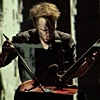
Stian Westerhus
guitarFor this performance, Bang and Henriksen brought Honor©” (significant, given he and Bang co-produced Henriksen's record), Aarset and

Ingar Zach
percussionWhile pieces from both albums were performed, not unlike the touring that Bang and Henriksen did for the trumpeter's Cartography (ECM, 2008)—the stylistic predecessor to Places of Worship, where Henriksen, Bang and Honor©” began to develop their reverse- engineering approach to composition—how they moved from one piece to another, and how these compositions were reshaped in real time into something else entirely made this more than just a simple reiteration of music both beautiful and, at times, extreme.
Arve went to low registers not normally played and upper ranges rarely heard, with absolute purity, He played lines that Bang would sample and send back to him, but this time two octaves higher. Zach, less about pulse and more about color, primarily employed a large gong and a massive concert drum that must have easily been three feet across, and placed on a stand so that the playing surface was presented flat to him, like a massive snare or a tom tom.
Henriksen's album is more intrinsically lyrical, so when it was time to turn to Bang's recording, it represented some of the set's most extreme moments—a different kind of approach to free improv that seems to have little to do with either American or European free improv approaches and is, instead, simply describable as: Punkt.

Henriksen changed horns often, and changed mouthpieces, too, putting a saxophone mouthpiece on his pocket trumpet. Using a mute to achieve a brassier tone on his trumpet, his playing was particularly memorable when Bang turned to the bass-heavy, sensual groove of "Funeral Voyage," which was, alas, all too brief, before morphing into something else and then back again. A brief encore was even more outr©”, with Henriksen's throat singing and Aarset's distorted swells of white noise fading to the sound of a dictaphone recording of an old singer, over which Henriksen began to to layer long lines redolent of, perhaps, Brazil—and, most assuredly, the subtropics.
Clearly Henriksen and Bang used their respective recordings as starting points rather than ultimate destinations, but if they took the music to places even those few already familiar with the music could not have envisaged, then Vladislav Delay's remix took things even further.
 Delay was one of the carryovers from last year's not-quite-Punkt festival. A Finnish electronic musician (real name: Sasu Ripatti) who adopts different pseudonyms depending upon the music, Vladislav Delay is clearly more about industrial sounds and less about overt rhythms, as he took Bang and Henriksen's performance and turned it into something harsher, denser, more foreboding...but still, somehow, strangely compelling, just as was the case in 2012. Delay was one of only two remixers who chose to work alone, without any musical collaborators; it might have been interesting to see what someone like Stian Westerhus, sadly not in attendance this year, might have done with Delay's massive sonics, but clearly Delay prefers to work alone. With the house now packed, Delay was truly invisible, only some heavily processed images of his hands, projected by Knudsen on the opaque curtain covering the remix alcove, gave any indication that there was someone back there. A subversive remix that incorporated elements of the source performance, but, at the same time, entirely reshaped the music.
Delay was one of the carryovers from last year's not-quite-Punkt festival. A Finnish electronic musician (real name: Sasu Ripatti) who adopts different pseudonyms depending upon the music, Vladislav Delay is clearly more about industrial sounds and less about overt rhythms, as he took Bang and Henriksen's performance and turned it into something harsher, denser, more foreboding...but still, somehow, strangely compelling, just as was the case in 2012. Delay was one of only two remixers who chose to work alone, without any musical collaborators; it might have been interesting to see what someone like Stian Westerhus, sadly not in attendance this year, might have done with Delay's massive sonics, but clearly Delay prefers to work alone. With the house now packed, Delay was truly invisible, only some heavily processed images of his hands, projected by Knudsen on the opaque curtain covering the remix alcove, gave any indication that there was someone back there. A subversive remix that incorporated elements of the source performance, but, at the same time, entirely reshaped the music. Day Two, September 7: The Kilowatt Hour / Bugge Wesseltoft / Maja Ratkje
Punkt's reputation as a festival where new things happen has evolved to the point where artists want to premiere new works there. Sometimes it's by accident—as when John Paul Jones joined noise improv group

Supersilent
band / ensemble / orchestraIn the case of The Kilowatt Hour—a new electronic group that brings together British avant-songsmith

David Sylvian
vocalsb.1958

Christian Fennesz
guitarThe Kilowatt Hour is representative of just how far Sylvian has come from his early days in Japan and the beginnings of a solo career on albums like Brilliant Trees (Virgin, 1984) and The First Day (Virgin, 1993). Since starting his SamadhiSound label in the early part of the new millennium, Sylvian has moved farther and farther from pop music—first deserting conventional songwriting on albums like Blemish (SamadhiSound, 2003) and, ultimately, Manafon; now, he has, at least for the time being, deserted singing entirely—and playing conventional instruments; instead, on the stage of the F?nix Kino (Cinema), Mathieu, Fennesz and Sylvian were lined up in a row in front of the huge theatre screen, largely with laptops (only Fennesz had a guitar, though the sounds he eked from it were far from conventional), mixing boards and other processing devices, for a 70-minute piece that centered around a poem by Franz Wright, the American poet who holds the illustrious position of being part of the only father/son team to both win Pulitzer Prizes (his father was James Wright, who won the price in 1972 for Collected Poems), Franz winning in 2004 for Walking to Martha's VIneyard).
The poetry chosen was taken from his most recent collection, Kindertotenwald (Alfred A. Knopf, 2011), and was delivered in as deadpan, worn and weathered voice of a man seriously ill, leading to a dark conclusion: "Nobody is alone...God is alone...if you liked being born, you're gonna love dying." The music was suitably bleak as well, with long, near-trance inducing sections where it was questionable what exactly each person on the stage was doing (even when Fennesz was playing guitar, it was only occasionally recognizable as such).
From the trio's website: "For Sylvian, the project entails taking risks: he will forego his most familiar instrument—his voice—and he will be returning to the stage for the first time since his 2007 tour. 'What will actually transpire once we're in a room together might be grounded in these early developments or something other might result from them and/or the chemistry between us,' says Sylvian. 'Both Stephan and Christian have systems in place that they're very familiar with. In this respect I'm something of an outsider as I've avoided working with specific setups most of my life. Each new project involves a learning curve, a process of starting over. I'm curious as to what my response will be to Christian and Stephan's intimacy and fluency with their setups. If I'm honest I'd be disappointed if I failed to discover a new language with which to work.'
With no rules to restrict them and no plan beyond these concerts, the Kilowatt Hour venture out with nothing but their intuition and taste to guide them. The performances will be an adventure for audience and artists alike."
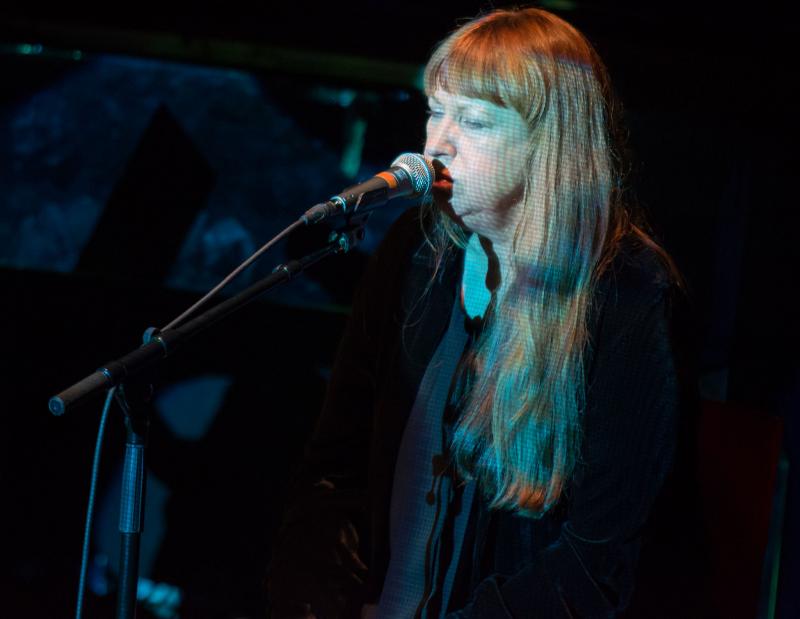
It was a strange adventure, to be sure, one with long passages of stasis, broken up only by the narrator's voice, with occasional brief thematic motifs injected: sometimes a guitar, sometimes a piano, but more often long, evolving sonics that, combined with visuals on the theatre screen that built to a climax of sorts, only to then begin to reduce again, back to the simple, throbbing image of the performance's very beginning. It's difficult to assess this music on normal terms, as it so often lacked the many things that make up conventional form: melody, harmony, rhythm. Instead, it was more like a soundtrack, a dreamscape, a mood or a state of mind. As the group's first live performance—a real coup for Punkt, and one that only could happen because of the positive relationship Sylvian has enjoyed with Punkt and with Bang and Honor©” on projects like Died in the Wool: Manafon Variations (Samadhisound, 2011)—it's hard to know where it will go or what it will become. But, once again, Punkt fans were treated to a first glimpse at a new process, and irrespective of the response, it was the kind of experience that has become almost normal, but never, ever taken for granted.
A quick walk back to Kick—The Kilowatt Hour was held at the Kino because of it's larger capacity, with Kick, when absolutely full with seating, handling just about the same 500 people that the old Agder Theatre held—and the only live remix this year where there was a time gap between it and the source performance. In this case, it was another Punkt power trio of Bang, Honor©” and Sidsel Endresen that remixed the Kilowatt Hour and, as expected, it was a winner. Endresen continues to move her exploration into the human voice's most extreme possibilities, while working so intimately with Bang and Honor©”, that it almost seems as though, for the most part, they were communicating telepathically.
Anything with Endresen is bound to be if not good then at least intriguing—a live remix is, after all, about risk, and sometimes it succeeds massively, sometimes it fails, but the journey is always worth it—but more often than not (way more often, truthfully), it's not just good, it's great. Opening with but a single repeated note, Endresen's voice became the starting point that might actually have been better than the source performance, something that can also happen. Her range continues to grow, and what Bang and Honor©” did was to cull the more engaging, somewhat active portions of the Kilowatt Hour performance and expand and contract it into new shapes. Perhaps most revealing was, at one point, when Bang somehow released (intentional or not) a loud, dramatic note, at which point the entire trio stopped briefly; Honor©” appeared to give a hand signal, and the trio then picked up where it left off.

The density and general stasis of source material made building a remix with its own narrative something of a challenge, but Endresen, Bang and Honor©” did just that as they turned to harsher, more jagged terrain.
Dave Mullan introduced the next performance as a work in progress, but when the artist taking the risk of going onstage to place that work in progress in front of an audience is keyboardist Bugge Wesseltoft, like Endresen, it's almost certain that it will be something worthwhile. Mullan referred to Wesseltoft—who has long employed him for website work, both with the Jazzland site and the Gubemusic site, one of the first to sell high resolution music files—as "my king," but with more hair than he's shown in years, he looked more like a mad scientist as he moved around the stage, turning knobs, twisting dials and occasionally settling into some absolutely captivating acoustic piano work.
Over the last couple of years, Wesseltoft has been mining the jazz tradition, playing solo performances of jazz standards—with one album, Songs (Jazzland, 2012), proving that it's possible to grow up in Norway and still have a direct, albeit considerably different, connection to the jazz tradition. His Punkt performance—a return after an absence of a couple years— seemed, at first to be a return to earlier explorations that blended acoustic piano work with processing, sampling and more, last heard on Playing (Jazzland, 2009), but it didn't take long to see that Wesseltoft's symbiotic connection between acoustic and electric instrumentation has gotten just that much deeper in the intervening years.
As usual, he began on grand piano, alone, evoking darker images than usual, with sparer ideas than in the past. But it wasn't long before the keyboardist began to sample his own playing, processing it, harmonizing it and just overall expanding it. What makes Wesseltoft stand out amongst the many electronic musicians are his instincts; he seems to know exactly what to do and when, even as he builds a set-long piece from zero. Some new textures, in particular a buzzing, distorted application to his piano was almost irritating, but that was, perhaps, the idea; to create an unsettled feeling so that when he resolved back to something easier on the ears—whether it was back at the piano or creating some programmed beats and synth textures—it came as a palpable relief.
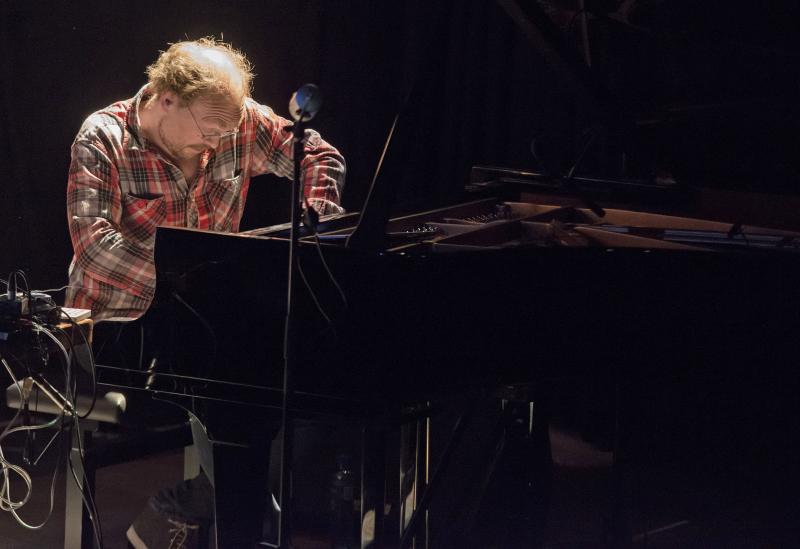
In some ways, while there are those who might consider the thought blasphemous, Wesseltoft is what

Keith Jarrett
pianob.1945

Arild Andersen
bass, acousticb.1945
Wesseltoft's textures weren't always attractive, but they were intriguing; meanwhile, Knudsen's visuals were particularly good, as Wesseltoft built up again to a thundering pulse and searing

Jimi Hendrix
guitar, electric1942 - 1970
From ethereal attitudes to hints of stride, flurries of cascading notes and aggressive,

Cecil Taylor
piano1929 - 2018
Rolf Wallin—far better known as a classical composer—hit the stage as soon as Wesseltoft was gone, for what may be the most unusual live remix in Punkt history. Armed only with an iPhone and using a self-developed app, he delivered a remix that was part music, part performance art, his app connecting to his Mac behind the scenes, responded to movement, to connection with his body, and to being covered and then opened up again—or, as he did at one point, slamming it face-down on a table, lifting it up, only to swoop down with it again.
Wallin moved around the stage, making the iPhone swoop and swirl as the music he sampled and remixed from Wesseltoft's performance did the same thing. How it worked? Few knew. But if it wasn't necessarily the best live remix of 2013—it was on a high plane with the rest of them—it certainly was the most talked about after the show and the next day.

To close out the Saturday evening—normally Punkt's last day but, because Kick was already booked on the Thursday when the festival made the decision to relocate, it had to be moved from Thursday to Saturday to Friday to Sunday—experimental vocalist/composer " data-original-title="" title="">Maja S.K. Ratkje delivered a set that lived up to Mullan's introduction, which described three people coming out of a show in Belfast, and one of the responses being "she scared me shitless."
Tags
Jan Bang
Live Reviews
John Kelman
Norway
Oslo
punkt festival
Brian Eno
Erik Honore
Arve Henriksen
David Sylvian
Christian Fennesz
Nils Petter Moilv?r
Eivind Aarset
Bugge Wesseltoft
Maja Ratkje
Tigran Hamasyan
Sidsel Endresen
Mathias Eick
Huntsville
Ivar Grydeland
Audun Kleive
Anders Jormin
Mats Gustafsson
Jaga Jazzist
Iro Haarla
Clifford Brown
Kenny Wheeler
Chick Corea
brad mehldau
Herbie Hancock
Stian Westerhus
Ingar Zach
Supersilent
Keith Jarrett
Arild Andersen
Jimi Hendrix
Cecil Taylor
Maja S.K. Ratkje
Spunk
john zorn
Frode Haltli
Sheila Jordan
Harvie S
Anouar Brahem
Ernst Reijseger
Harmen Fraanje
Terje Rypdal
Jon Balke
Per J?rgensen
Jon Hassell
Audun Erlien
Erland Dahlen
Miles Davis
Martin France
Comments
PREVIOUS / NEXT
Support All About Jazz
 All About Jazz has been a pillar of jazz since 1995, championing it as an art form and, more importantly, supporting the musicians who make it. Our enduring commitment has made "AAJ" one of the most culturally important websites of its kind, read by hundreds of thousands of fans, musicians and industry figures every month.
All About Jazz has been a pillar of jazz since 1995, championing it as an art form and, more importantly, supporting the musicians who make it. Our enduring commitment has made "AAJ" one of the most culturally important websites of its kind, read by hundreds of thousands of fans, musicians and industry figures every month.
Go Ad Free!
To maintain our platform while developing new means to foster jazz discovery and connectivity, we need your help. You can become a sustaining member for as little as $20 and in return, we'll immediately hide those pesky ads plus provide access to future articles for a full year. This winning combination vastly improves your AAJ experience and allow us to vigorously build on the pioneering work we first started in 1995. So enjoy an ad-free AAJ experience and help us remain a positive beacon for jazz by making a donation today.

Oslo
Concert Guide | Venue Guide | Local Businesses
| More...
Oslo Concerts
Sep
21
Sun
Jazz Noir: Celebrating Frank Sinatra - 110th Anniversary
Chat Noir
Oslo, Norway
Sep
23
Tue

Jakob Bro
BlÅ
Oslo, Norway
Sep
25
Thu
Moses Yoofee Trio
Cosmopolite Scene
Oslo, Norway
Sep
26
Fri
Thomas Dybdahl med band
Sentrum Scene
Oslo, Norway
Oct
2
Thu
Cloud Cuckoo
BlÅ
Oslo, Norway
Oct
11
Sat

Marcus Miller
Cosmopolite Scene
Oslo, Norway
Oct
15
Wed
Johnathan Blake - My Life Matters
Cosmopolite Scene
Oslo, Norway
Oct
16
Thu
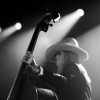
Wojtek Mazolewski Quintet
Cosmopolite Scene
Oslo, Norway
Oct
18
Sat

Alabaster Deplume
Parkteatret Scene
Oslo, Norway
Oct
20
Mon
Beth Hart
Sentrum Scene
Oslo, Norway

Oslo
Concert Guide | Venue Guide | Local Businesses | More...
Sep
21
Sun
Jazz Noir: Celebrating Frank Sinatra - 110th Anniversary
Chat NoirOslo, Norway
Sep
23
Tue

Jakob Bro
BlÅOslo, Norway
Sep
25
Thu
Moses Yoofee Trio
Cosmopolite SceneOslo, Norway
Sep
26
Fri
Thomas Dybdahl med band
Sentrum SceneOslo, Norway
Oct
2
Thu
Cloud Cuckoo
BlÅOslo, Norway
Oct
11
Sat

Marcus Miller
Cosmopolite SceneOslo, Norway
Oct
15
Wed
Johnathan Blake - My Life Matters
Cosmopolite SceneOslo, Norway
Oct
16
Thu

Wojtek Mazolewski Quintet
Cosmopolite SceneOslo, Norway
Oct
18
Sat

Alabaster Deplume
Parkteatret SceneOslo, Norway
Oct
20
Mon
Beth Hart
Sentrum SceneOslo, Norway


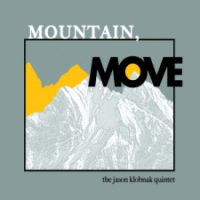
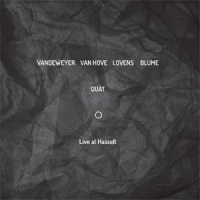

 Buy Now
Buy Now






